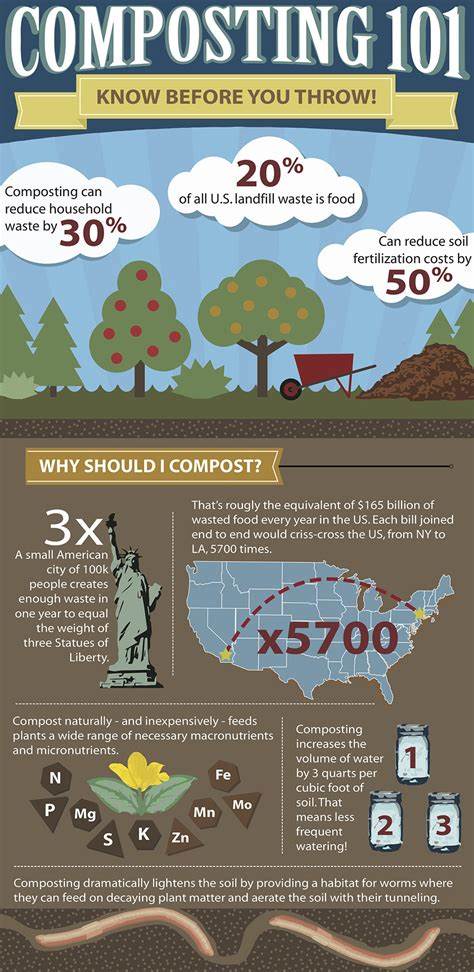Composting 101: An Infographic of Info You Need To Know Before Composting
- by
- Gene Caballero
- June 10, 2021
Composting is a great way to do your part to cut down on waste, and best of all you can use your kitchen scraps in your lawn and garden. But if you don’t know what you are doing, you may end up doing more harm than good.
Why should I consider composting my scraps?
Well, there are many good reasons to consider compositing. Many of the food scraps we can not eat are still loaded with valuable nutrients. These nutrients can be vital to restoring the health of your lawn or landscape and even improving it naturally. Why spend 100’s of dollars on fertilizers, when composting is free!
How is composting good for the environment?
Composting is great for the environment for many reasons. For one compost makes up 20% of landfill waste. And composting can reduce a households waste by 30%! Best of all, replacing part of your fertilizer with organic compost can be a great way to cut back on fertilizer. And it's no secret, fertilizer production can be rough on the environment.
What are other reasons for composting?
Composting can increase the water volume by 3 quarts per cubic foot of soil. Which results in needing to water less frequently. Additionally, compost is loaded with NPK nutrients, magnesium, iron, and much much more.
Your Green Pal's "Composting 101: An Infographic of Info You Need To Know Before Composting" emphasizes the significant benefits and environmental impact of composting. Composting transforms food scraps, rich in nutrients, into a valuable resource for enhancing lawn and landscape health, offering a natural and cost-effective alternative to commercial fertilizers.
By composting, you can reduce landfill waste, as compostables account for 20% of landfill contents. It's an environmentally friendly practice, reducing household waste by up to 30% and cutting down on the need for fertilizer production, which can be harmful to the environment. Compost also improves soil's water retention, reducing the frequency of watering. With the U.S. discarding around $165 billion worth of food annually, composting presents a practical solution to minimize food waste and enrich soil health.
How much food waste does the US produce annually?
The US wastes approximately $165 billion of food annually. Which is enough to stretch from NY to LA 5700x bill by bill.
At the end of the day, composting is an excellent way to reduce your food waste, and improve your lawn and garden health year after year. Be sure to share this infographic with your friends and family so we can all reduce food waste together.
Powered by Froala Editor











